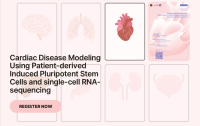The Institute of Biology and the Philippine Genome Center is co-hosting a seminar titled “Cardiac Disease Modeling Using Patient-derived Induced Pluripotent Stem Cells and single-cell RNA-sequencing” featuring Dr. Michael Zumaraga, Associate Professor from the UCI Cardiogenomics Research Program. The talk will be held on July 16, 2025, 10:00 am PST, at Rm 250, IB building, UP Diliman.
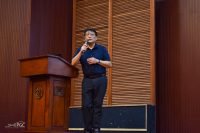
PGC hosts World Expert Lecture Series talk featuring Dr. Glenn Satuito
Exploring the Depths—In an extension of the World Expert Lecture Series (WELS) Program hosted by the UP Office of International Linkages, the Philippine Genome Center (PGC) presented a PGC Talks lecture featuring Prof. Dr. Glenn Satuito. The seminar took place on February 23, 2024, at the Institute of Biology Auditorium. Prof. Dr. Glenn Satuito, a […]
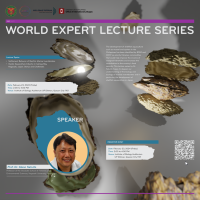
PGC Talks: World Expert Lecture Series featuring Prof. Dr. Glenn Satuito on February 23, 2024
The Philippine Genome Center will be hosting Prof. Dr. Glenn Satuito on February 23, 2024 (Friday), for a lecture on the following topics as an extension of his World Expert Lecture Series under the WELS Grant Program: Settlement Behavior of Benthic Marine Invertebrates Oyster Aquaculture Industry in Isahaya Bay, Nagasaki, Japan: Status and Challenges Prof. […]
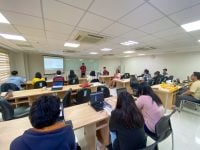
Metabolomics in Epidemiologic Studies of Chronic Diseases and Beyond
On August 22, 2023, the Protein, Proteomics, and Metabolomics Facility (PPMF) organized a talk featuring Dr. Marinella Temprosa from the Milken Institute School of Public Health at George Washington University. Dr. Temprosa, an esteemed Associate Research Professor specializing in Biostatistics and Bioinformatics, delivered an insightful lecture on the applications of “Metabolomics in Epidemiologic Studies of […]
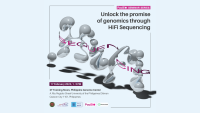
Unlock the promise of genomics through HiFi sequencing
The DNA Sequencing Core Facility together with Noveaulab will be hosting a seminar on February 17, 2023, “PacBio Seminar: Unlock the promise of genomics through HiFi sequencing”
Date: Tuesday, February 17, 2023
Time: 1:00 PM Philippine Standard Time
Type: Onsite
Dr. Zuwei Qian, PacBio Director of Marketing for the APAC region will be the presenting the following topics:
HiFi reads: a new era for metagenome analysis
The long and short of it: PacBio sequencing for precision medicine
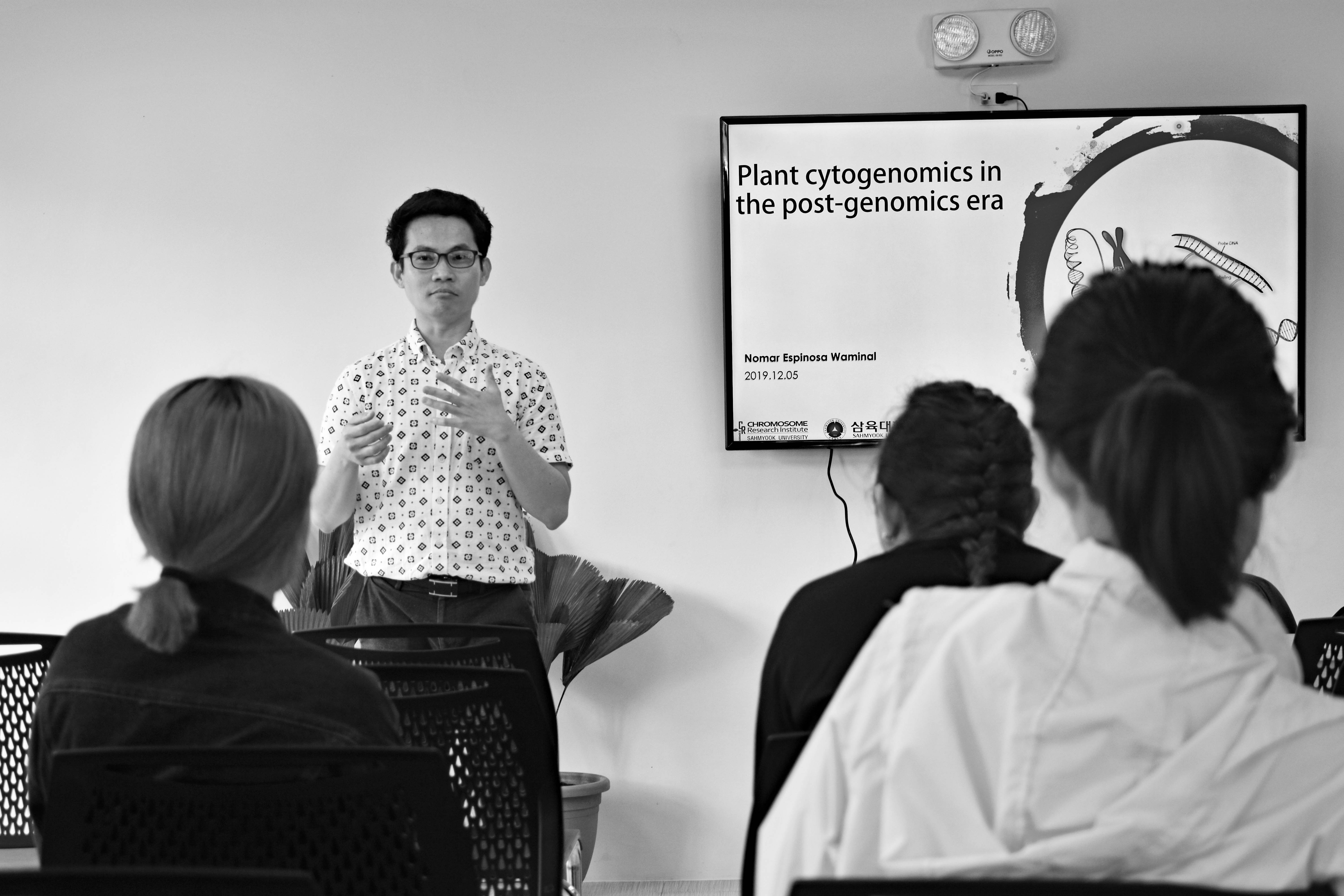
Cytogenetics in Plant Breeding: Conservation and Evolution in the Post-Genomics Era
This seminar features the PGC hosted Balik Scientist Dr. Nomar Waminal who will be presenting his talk on “Cytogenetics in Plant Breeding: Conservation and Evolution in the Post-Genomics Era”. Dr. Waminal is currently serving as a Research Professor under the Chromosome Research Institute at Sahmyook University, Seoul, Republic of Korea. He was a Samsung Global Scholar and received his Ph.D. in Crop Science and Biotechnology from Seoul National University.
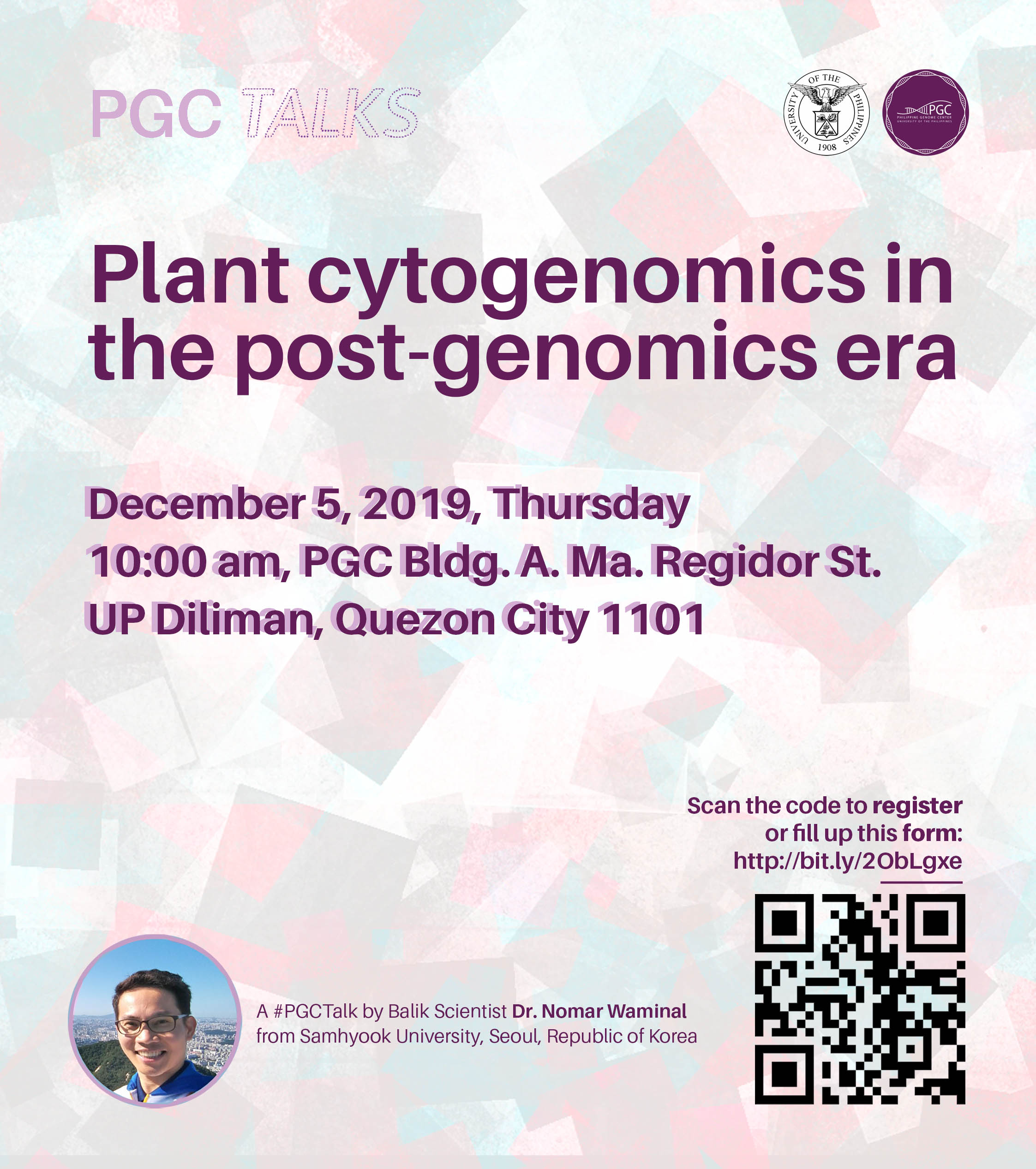
Plant cytogenomics in the post-genomics era
The release of the first human reference genome in 2003 marked the beginning of the post-genomics era when genetics progressed beyond gene-centered analyses to a myriad of omics approaches. Genome sequencing technologies have advanced dramatically from Sanger, second/next-generation, to third-generation sequencing platforms. Also, genome assembly methods and tools have evolved contemporaneously, resulting in a dramatic drop in genome assembly cost. Consequently, more than 360 plant species’ genomes have been assembled ever since the first plant genome, Arabidopsis thaliana, was published in 2000.
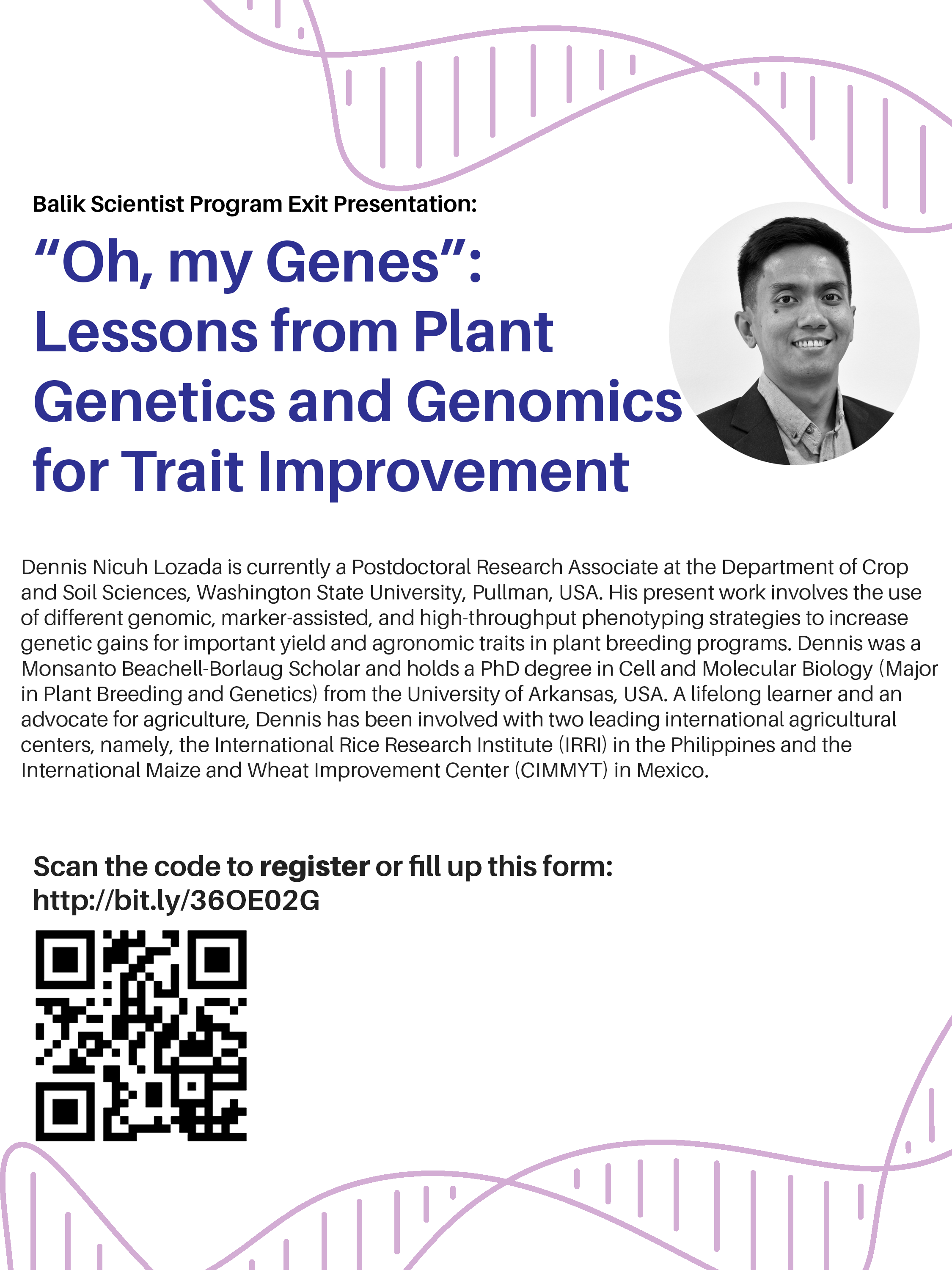
“Oh, my Genes”: Lessons from Plant Genetics and Genomics for Trait Improvement
In recent years, genetics and genomics has played an important role in facilitating the genetic improvement of plants. Different tools have been developed to examine the structure, function, and properties of genes controlling complex traits. The genetic diversity of germplasm found in existing gene banks through different breeding populations such as core collections, nested association mapping panels, mutants, recombinant inbred lines, and multiparent advance generation intercross populations in germplasm banks served as sources of desirable alleles for plant breeding.
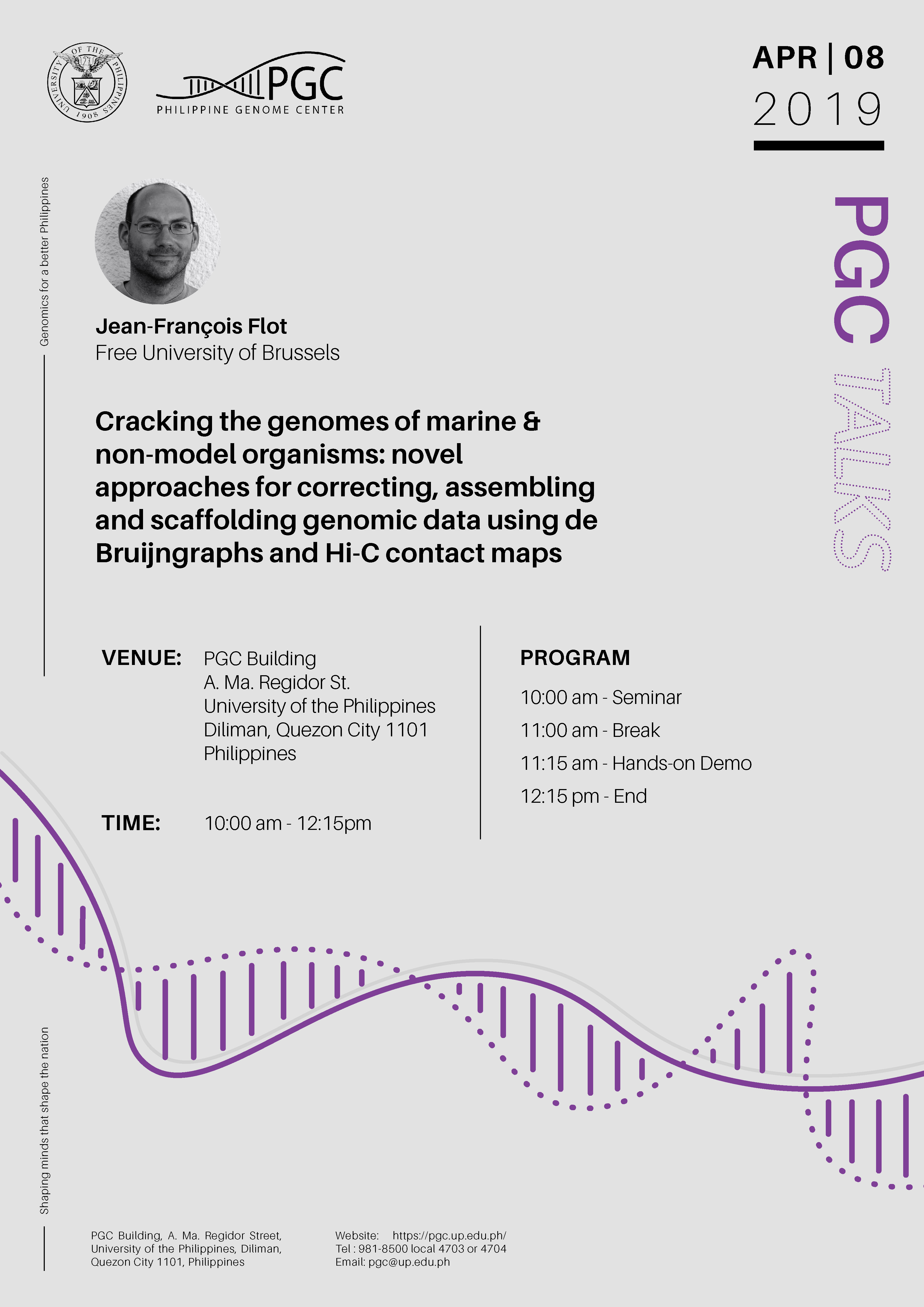
Cracking the genomes of marine & non-model organisms: novel approaches for correcting, assembling and scaffolding genomic data using de Bruijn graphs and Hi-C contact maps
For a very long time, most bioinformatic tools for handling genome data have been geared toward haploid (or diploid but nearly homozygous) organisms such as humans, bacteria and laboratory strains of model species. As a result, these tools often perform very badly on highly heterozygous diploid or polyploid organisms, which is the case of many non-model and/or marine species.
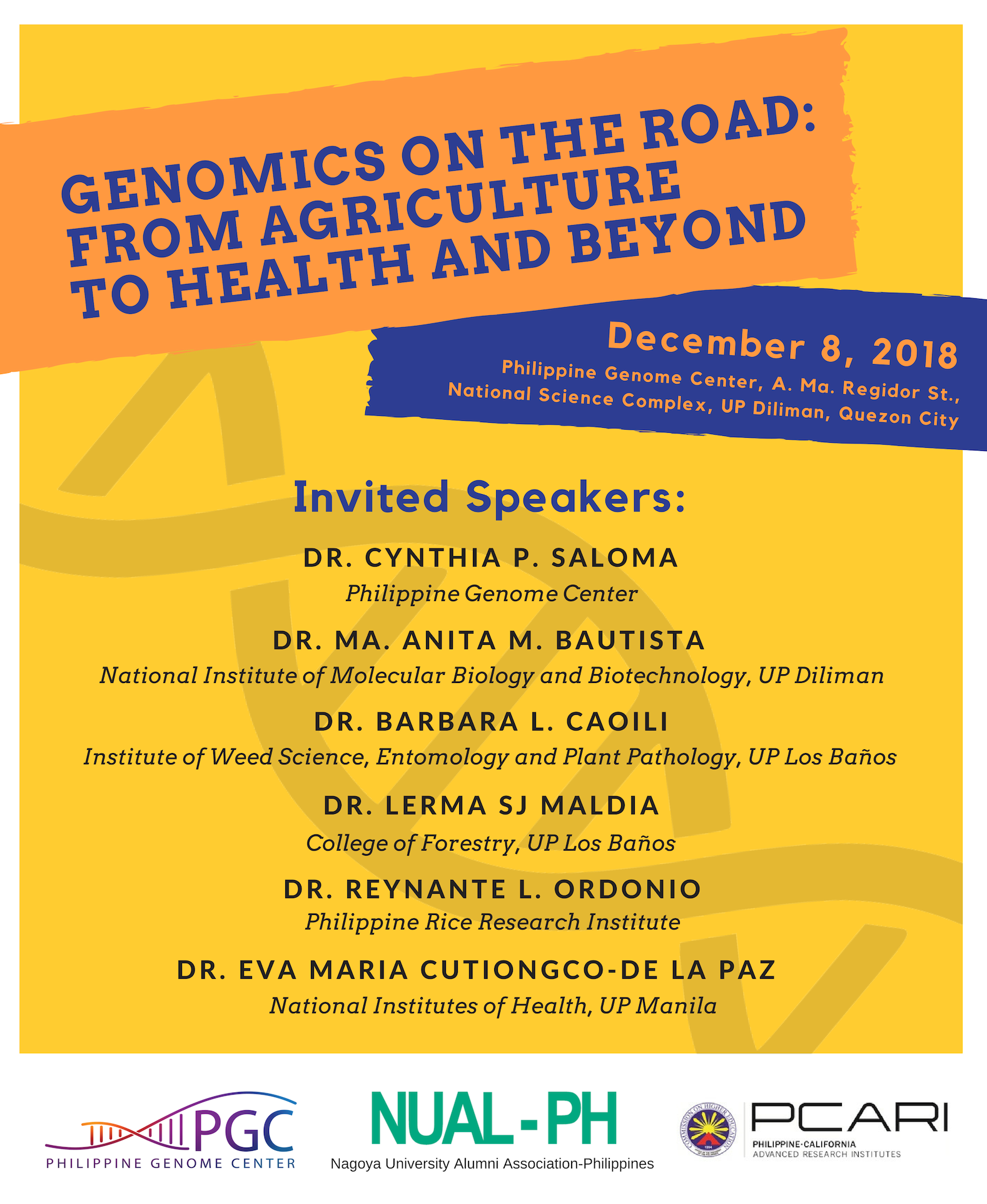
Genomics on the road: From Agriculture to Health and Beyond
The seminar will focus on genomics applications in Agriculture, Health, and Forestry. Topics include Agrigenomics, Entomopathogenomics, Shrimp Pathogenomics, Forest tree genomics, and more.

